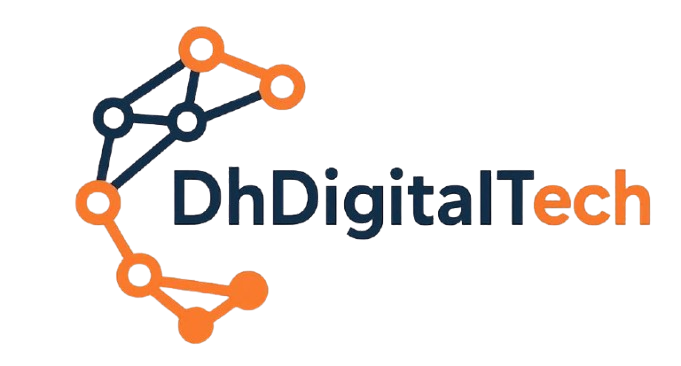AI-Powered Digital Transformation: How Startups Can Scale Smarter in 2025
In today’s hyper-competitive digital economy, startups face an increasingly complex challenge: how to achieve exponential growth without burning through limited resources or compromising quality. The landscape has fundamentally shifted. Traditional approaches to marketing, product development, and scaling are not just insufficient—they’re becoming obsolete. To survive and thrive, startups must embrace AI-powered digital transformation to operate smarter, faster, and leaner than ever before.
The statistics are compelling and impossible to ignore. 78 percent of organizations now use AI in at least one business function, up from 72 percent in early 2024 and 55 percent a year earlier. More importantly for startups, companies leveraging AI for automation grow 2.3x faster than those relying on manual processes, while AI-driven startups secure 20–40% more funding than non-AI competitors.
The Fundamental Shift: Why 2025 Is the Inflection Point
The AI revolution isn’t coming—it’s here, and it’s reshaping the startup ecosystem at an unprecedented pace. AI has upended the cost structure of scaling. Startups that once needed dozens or even hundreds of employees to execute their growth strategies can now automate entire functions, keeping costs low without sacrificing progress.
The New Reality of AI Adoption
The data reveals a dramatic acceleration in AI adoption across all sectors:
– Over 73% of organizations worldwide are either using or piloting AI in core functions
– 77% of companies are either using or exploring the use of AI
– 75.7% of digital marketers rely on AI tools to perform their tasks
– About 50-60% of companies now leverage AI to transform operations, from enhancing forecasting accuracy to optimizing logistics
However, the most telling statistic for startups is this: The most common reason for businesses not using AI was finance/cost (51%). This creates a massive competitive advantage for startups that can implement AI cost-effectively.
The Economic Transformation
AI startups are trying approaches that would have been economically absurd six months ago, often with surprising success. The cost collapse in AI technology means that sophisticated capabilities once reserved for tech giants are now accessible to bootstrapped startups. Vertical winners lead the way with $1.1B in funding raised in 2025, indicating that investors are betting heavily on AI-native companies.
The Strategic Imperative: AI-First vs. AI-Last Companies
The market is rapidly dividing into two categories: companies that build AI into their DNA from day one, and those that bolt it on as an afterthought. The difference in outcomes is stark. 71% of Frontier Firm leaders say their company is thriving, compared to just 39% of workers globally. 55% say they’re able to take on more work (vs. 25% globally).
Understanding the AI-First Advantage
AI-first startups don’t just use AI tools—they architect their entire business model around AI capabilities. This approach yields several critical advantages:
- Capital Efficiency Revolution
Traditional startups require massive teams to scale operations. AI-first companies can achieve similar scale with dramatically smaller teams, improving unit economics from day one.
- Speed to Market Acceleration
AI removes bottlenecks by streamlining repetitive tasks, allowing startups to iterate faster, test more hypotheses, and reach product-market fit more quickly.
- Competitive Moats through Intelligence
While traditional startups compete on features, AI-first companies compete on intelligence, creating defensible advantages that improve over time.
Key Areas Startups Must Master for AI-Powered Growth
Market Research & Data-Driven Intelligence: The New Competitive Edge
Gone are the days when startups could rely on intuition or months-long market research cycles. Today’s successful startups leverage AI to generate **actionable insights in days, not months**, fundamentally changing how they understand and respond to market dynamics.
The Intelligence Revolution in Market Research
Modern AI-powered market research tools have transformed how startups approach competitive intelligence and customer understanding:
Real-Time Competitive Analysis
– AI tools can monitor competitor pricing, product launches, and marketing strategies in real-time
– Predictive analytics identify market gaps before competitors recognize them
– Sentiment analysis across social media, reviews, and forums reveals customer pain points instantly
Customer Behavior Prediction
– Machine learning models analyze purchasing patterns to predict customer lifetime value
– AI identifies micro-segments within target markets that traditional research might miss
– Behavioral analytics predict churn risk and optimal intervention timing
Emerging Trend Detection
– Natural language processing analyzes millions of online conversations to identify trending topics
– Search trend analysis combined with social media monitoring reveals emerging market opportunities
– AI-powered surveys adapt questions in real-time based on responses, improving data quality
Essential Tools and Platforms
Advanced Analytics Platforms
– MonkeyLearn: Provides text analysis and sentiment monitoring across multiple channels
– Power BI with AI capabilities: Offers predictive analytics and automated insights generation
– Tableau with Einstein Analytics: Delivers AI-powered data visualization and pattern recognition
Market Intelligence Solutions:
– Crayon: AI-powered competitive intelligence that tracks competitor activities
– SimilarWeb: Website traffic analysis and market share insights
– Brandwatch: Social media monitoring with AI-powered sentiment analysis
Implementation Strategy
Successful startups implement a three-tier market intelligence system:
- Daily Monitoring: Automated alerts for competitor activities, mention tracking, and market sentiment changes
- Weekly Analysis: Deep-dive reports on customer behavior patterns and market shifts
- Monthly Strategic Reviews: Comprehensive market position analysis and opportunity identification
Agile Project Management for Exponential Speed
In the age of AI, traditional project management approaches become bottlenecks rather than enablers. Modern startups require hyper-agile methodologies that can adapt to AI-accelerated development cycles and market changes.
The Evolution of Agile in the AI Era
In 2025, AI agents will start to reshape demand for software platforms, as companies use them to fill the gaps of existing systems. This means project management must evolve to accommodate AI-assisted development and automated decision-making.
AI-Enhanced Scrum Implementation
– Sprint Planning: AI tools analyze historical velocity data to optimize sprint capacity
– Daily Standups: Automated progress tracking reduces meeting time by 40%
– Retrospectives: AI identifies patterns in team performance and suggests process improvements
Kanban with Predictive Analytics:
– Flow Optimization: Machine learning predicts bottlenecks before they occur
– Capacity Planning: AI models forecast team workload and suggest resource allocation
– Cycle Time Prediction: Historical data analysis provides accurate delivery estimates
Modern Project Management Stack
Core Platforms:
– Notion AI: Combines project management with AI-powered documentation and analysis
– Linear: Developer-focused project management with AI-powered issue triage
– Monday.com: Workflow automation with built-in AI predictive capabilities
AI-Enhanced Tools:
– GitHub Copilot for Project Planning: AI assistance in breaking down complex projects
– Forecast: AI-powered resource planning and project timeline optimization
– ClickUp AI: Automated task creation and progress tracking
Integration Ecosystem:
– Zapier: Automates workflows between different tools
– Microsoft Power Automate: Enterprise-grade workflow automation
– IFTTT: Simple automation for routine project management tasks
Measuring Success in AI-Accelerated Development
Key performance indicators for AI-enhanced agile processes:
– Velocity Improvement: Teams using AI assistance show 35-50% improvement in story point completion
– Bug Reduction: AI-assisted development reduces critical bugs by up to 60%
– Time to Market: AI-enhanced project management reduces average feature delivery time by 30%
Smart Digital Media Strategy: Precision Marketing at Scale
With marketing budgets tighter than ever and customer acquisition costs rising across all channels, startups need surgical precision in their marketing approach. AI-powered marketing isn’t just about automation—it’s about creating personalized, data-driven campaigns that deliver measurable ROI.
The Paradigm Shift in Startup Marketing
4 in 5 retail executives are set to adopt AI automation by 2025, indicating that AI-powered marketing is becoming table stakes, not a competitive advantage. Startups must go deeper than basic automation to achieve breakthrough results.
Hyper-Personalization at Scale:
– AI analyzes individual customer journeys to create personalized content paths
– Dynamic website content adapts in real-time based on visitor behavior and demographics
– Email marketing campaigns optimize send times, subject lines, and content for each recipient
Predictive Customer Acquisition:
– Machine learning models identify lookalike audiences with 80%+ accuracy
– AI predicts customer lifetime value at the point of first interaction
– Behavioral scoring identifies high-intent prospects before they convert
Creative Intelligence:
– AI generates and tests multiple ad variations simultaneously
– Computer vision analyzes top-performing creative elements across campaigns
– Natural language processing optimizes copy for different audience segments
Essential AI-Powered Marketing Tools
Content Creation and Optimization:
– Jasper (formerly Jarvis): AI copywriting for blogs, social media, and advertising
– AdCreative.ai: Automated ad creative generation and testing
– Copy.ai: Marketing copy generation with brand voice consistency
– Canva AI: Design automation with brand guideline adherence
Campaign Management and Analytics:
– HubSpot AI: Comprehensive marketing automation with predictive analytics
– Klaviyo: AI-powered email marketing with advanced segmentation
– Facebook/Meta AI: Automated ad optimization and audience targeting
– Google Ads AI: Smart bidding and automated campaign optimization
Customer Intelligence Platforms:
– Amplitude: Product analytics with AI-powered insights
– Mixpanel: User behavior analysis and predictive modeling
– Segment: Customer data platform with AI-enhanced audience building
ROI Optimization Strategies
Successful AI-powered marketing strategies focus on three key areas:
- Attribution Modeling
– Multi-touch attribution reveals the true impact of each marketing touchpoint
– AI models account for offline interactions and delayed conversions
– Cross-channel attribution optimizes budget allocation across platforms
- Dynamic Budget Allocation
– AI automatically shifts budget toward high-performing campaigns
– Real-time bidding optimization maximizes ad spend efficiency
– Predictive modeling identifies optimal spending windows
- Lifetime Value Optimization
– Customer scoring models prioritize high-value prospects
– Retention campaigns target at-risk customers with personalized offers
– Upselling algorithms identify expansion opportunities
Performance Benchmarks and KPIs
Startups using AI-powered marketing strategies typically achieve:
– 50-70% reduction in customer acquisition costs
– 35-45% improvement in email open and click-through rates
– 25-40% increase in conversion rates across paid channels
– 60-80% time savings in campaign creation and management
Lean Web & Mobile Development with AI: Building at Light Speed
The traditional approach to software development—where startups spend months building MVPs before getting market feedback—is not just inefficient; it’s a startup killer. Modern development must be AI-accelerated, user-focused, and iteration-friendly.
The AI Development Revolution
AI startups are trying approaches that would have been economically absurd six months ago. This includes AI-assisted development that dramatically reduces time-to-market while maintaining high code quality.
Code Generation and Assistance:
– AI pair programming reduces development time by 30-50%
– Automated testing generation ensures higher code quality
– Bug detection and fix suggestions prevent production issues
No-Code/Low-Code Acceleration:
– Visual development platforms enable rapid prototyping
– AI-powered design-to-code conversion accelerates UI development
– Automated database schema generation from business requirements
DevOps and Deployment Automation:
– AI-optimized CI/CD pipelines reduce deployment time
– Automated performance monitoring and optimization
– Predictive scaling based on usage patterns
Modern Development Stack
AI-Assisted Development:
– GitHub Copilot: AI pair programming for faster code generation
– Tabnine: Intelligent code completion across multiple languages
– Amazon CodeWhisperer: ML-powered coding companion
– Replit Ghostwriter: AI-powered code generation and explanation
No-Code/Low-Code Platforms:
– Bubble: Visual web application development
– Webflow: Design-to-code website builder
– Airtable: Database and application building platform
– Zapier: Workflow automation and integration
Testing and Quality Assurance:
– Testim: AI-powered automated testing
– Mabl: Intelligent test automation
– Applitools: Visual AI testing for UI/UX
– Sauce Labs: Cross-platform testing automation
Cloud Infrastructure:
– AWS with AI services: Scalable infrastructure with built-in AI capabilities
– Google Cloud AI Platform: Integrated development and deployment
– Microsoft Azure AI: Enterprise-grade AI development tools
– Vercel: Edge-optimized deployment platform
Development Methodology: AI-First Approach
Sprint 0: AI-Powered Planning
– Use AI tools to analyze market requirements and generate technical specifications
– Automated user story generation from business requirements
– AI-assisted architecture design and technology stack selection
Development Sprints: Accelerated Iteration
– Daily AI-assisted code reviews and optimization suggestions
– Automated testing with every code commit
– Real-time performance monitoring and optimization
Deployment and Monitoring: Intelligent Operations
– AI-powered deployment pipelines with rollback capabilities
– Predictive monitoring for performance issues
– User behavior analysis for feature optimization
Performance Metrics and Outcomes
Startups implementing AI-first development approaches report:
– 40-60% reduction in MVP development time
– 50-70% fewer production bugs
– 30-45% faster feature delivery cycles
– 25-35% improvement in code quality scores
AI Integration for Smarter Business Processes
Beyond marketing and development, AI integration across all business functions creates compound advantages that traditional startups cannot match. Industries like retail, financial services, healthcare, logistics, and manufacturing use scalable AI to reduce costs and improve operational efficiency.
Core Business Function Transformation
Customer Service Revolution:
– AI chatbots handle 70-80% of routine inquiries
– Sentiment analysis routes urgent issues to human agents
– Predictive support identifies and resolves issues before customers report them
Sales Process Optimization:
– Lead scoring models prioritize high-conversion prospects
– AI-powered CRM systems suggest optimal engagement timing
– Automated proposal generation based on customer needs analysis
Financial Operations:
– AI-powered accounting reduces manual bookkeeping by 80%
– Predictive cash flow modeling improves financial planning
– Automated expense categorization and fraud detection
Human Resources Enhancement:
– AI-powered candidate screening improves hiring quality
– Performance analytics identify training needs and career development opportunities
– Automated onboarding processes reduce time-to-productivity
The 2025 Startup Success Framework: Beyond Tools to Transformation
Success in 2025 requires more than implementing AI tools—it demands a fundamental transformation in how startups think, operate, and compete. This transformation encompasses technology, culture, and strategy.
The AI-Native Organizational Design
Flat, Data-Driven Hierarchies:
Modern startups organize around data flow and AI capabilities rather than traditional departments. Cross-functional teams’ access to shared AI tools and databases enables rapid decision-making and execution.
Continuous Learning Culture:
55% say they’re able to take on more work (vs. 25% globally) when AI is properly integrated. This productivity gain comes from creating a culture where team members continuously learn and adapt to new AI capabilities.
Remote-First, AI-Enhanced Collaboration:
AI tools enable seamless remote collaboration through automated meeting summaries, intelligent project tracking, and predictive resource allocation.
Financial Strategy in the AI Era
Capital Efficiency Metrics:
– Revenue per employee should be 2-3x higher than traditional startups
– Customer acquisition cost should decrease over time as AI improves targeting
– Gross margins should improve through automation and optimization
Funding Strategy Optimization:
AI-driven startups secure 20–40% more funding than non-AI competitors. This advantage comes from demonstrating superior unit economics and scalability potential.
Risk Management:
– AI-powered financial modeling provides better cash flow predictions
– Automated compliance monitoring reduces regulatory risks
– Predictive analytics identify business risks before they materialize
Competitive Strategy and Market Positioning
Differentiation through Intelligence:
Instead of competing on features, AI-first startups compete on the intelligence of their solutions. This creates sustainable competitive advantages that improve over time.
Network Effects Amplification:
AI systems that learn from user behavior create powerful network effects where the product improves as more users adopt it.
Partnership Ecosystem Development:
Successful startups build AI-enhanced partnership programs that create mutual value through data sharing and collaborative intelligence.
Emerging Trends and Future Opportunities
The Rise of AI Agents
In 2025, AI agents will start to reshape demand for software platforms, as companies use them to fill the gaps of existing systems. Startups that build AI agent capabilities into their core offering will have significant advantages.
Autonomous Customer Success:
AI agents that proactively identify and resolve customer issues before they escalate.
Intelligent Sales Assistants:
AI agents that qualify leads, schedule meetings, and provide personalized product recommendations
Automated Content Creation:
AI agents that generate blog posts, social media content, and marketing materials based on performance data.
Industry-Specific AI Applications
Fintech Innovation:
Fintech, software, and banking are the main sectors with the highest concentration of AI leaders. Opportunities include fraud detection, credit scoring, and personalized financial advice.
Healthcare Transformation:
AI Medical Employees are 20x cheaper, 10x faster, and can integrate and use healthcare tools. Telemedicine, diagnostic assistance, and patient monitoring present significant opportunities.
E-commerce Evolution:
Personalized shopping experiences, inventory optimization, and predictive logistics create new competitive advantages.
The Infrastructure Opportunity
MLOps frameworks are essential for managing scalable AI solutions, offering automation, monitoring, and collaboration across teams. Startups building AI infrastructure and tooling will benefit from the growing demand for AI capabilities.
Overcoming Common Implementation Challenges
Technical Challenges and Solutions
Data Quality and Preparation:
– Implement automated data cleaning pipelines
– Use AI-powered data validation tools
– Establish clear data governance policies
Model Performance and Monitoring:
– Deploy continuous model monitoring systems
– Implement A/B testing frameworks for AI features
– Use automated retraining pipelines
Scalability and Performance:
– Design cloud-native, containerized AI systems
– Implement edge computing for latency-sensitive applications
– Use distributed computing frameworks for large-scale processing
Organizational Challenges
Skills Gap and Training:
– Partner with AI education platforms for team training
– Hire AI-native talent from competitive markets
– Implement internal AI literacy programs
Change Management:
– Start with high-impact, low-risk AI implementations
– Demonstrate ROI quickly to build organizational buy-in
– Create clear communication about AI’s role in job enhancement, not replacement
Budget and Resource Allocation:
The most common reason for businesses not using AI was finance/cost (51%). Address this through:
– Phased implementation approaches
– Focus on quick wins that self-fund further AI investment
– Leverage open-source and low-cost AI tools initially
Regulatory and Ethical Considerations
Data Privacy and Compliance:
– Implement privacy-by-design principles in AI systems
– Use federated learning approaches where possible
– Maintain clear data usage and retention policies
AI Ethics and Bias Prevention:
– Implement bias detection and mitigation tools
– Diverse dataset collection and model testing
– Regular AI ethics audits and assessments
Transparency and Explainability:
– Use interpretable AI models where decisions impact users
– Implement clear AI decision audit trails
– Provide users with AI transparency reports
Measuring Success: KPIs for AI-Powered Startups
Financial Metrics
Revenue Efficiency:
– Revenue per employee should exceed $200,000 annually
– Customer acquisition cost should decrease by 20-30% year-over-year
– Gross margins should improve by 5-10% annually through automation
Growth Metrics:
– Monthly recurring revenue growth of 10-20% monthly
– Net revenue retention above 110%
– Time to pay back CAC under 12 months
Operational Metrics
Productivity Indicators:
– 40-60% reduction in time spent on routine tasks
– 30-50% improvement in project delivery speed
– 50-70% reduction in operational errors
Customer Satisfaction:
– Net Promoter Score improvement of 20-30 points
– Customer support response time reduction of 60-80%
– Customer churn reduction of 25-40%
AI-Specific Metrics
Model Performance:
– Prediction accuracy above 85% for business-critical models
– Model drift detection and correction within 24 hours
– A/B test statistical significance achieved within 2-4 weeks
Automation Metrics:
– 70-80% of routine customer inquiries handled by AI
– 90%+ accuracy in automated data processing
– 50-70% reduction in manual approval processes
How DhDigitalTech Empowers Startup Success
At DhDigitalTech, we understand that successful AI-powered digital transformation requires more than just implementing tools—it requires a strategic partner who understands the unique challenges and opportunities facing modern startups.
Our Comprehensive Approach
Strategic AI Consulting:
We begin every engagement with a comprehensive AI readiness assessment, identifying the highest-impact opportunities for your specific business model and market position. Our team combines deep technical expertise with practical startup experience to create realistic, actionable transformation roadmaps.
Agile Project Management Excellence:
Our project management approach is built for the AI era, combining traditional agile methodologies with AI-enhanced planning, monitoring, and optimization tools. We help startups achieve 30-50% faster delivery times while maintaining high quality standards.
Market Research & AI-Powered Insights:
Our research team leverages advanced AI tools to provide startups with competitive intelligence, customer insights, and market opportunity analysis that would typically require months and significant resources to obtain through traditional methods.
Digital Media Strategy That Converts:
We create data-driven marketing strategies that leverage AI for personalized customer acquisition, retention, and growth. Our clients typically see 40-60% improvements in customer acquisition costs and 25-35% increases in conversion rates.
Cutting-Edge Web & Mobile Development:
Our development team uses the latest AI-assisted development tools and methodologies to deliver MVPs and full products in record time. We specialize in building scalable, AI-native applications that can grow with your business.
End-to-End AI Integration:
We help startups integrate AI across all business functions, from customer service and sales to operations and finance. Our holistic approach ensures that AI investments deliver compound returns across your organization.
Our Proven Track Record
Results That Matter:
– Average 2.5x improvement in development speed for client projects
– 40-60% reduction in customer acquisition costs through AI-powered marketing
– 50-70% improvement in operational efficiency through process automation
– 90%+ client satisfaction scores across all service areas
Industry Recognition:
– Certified partners with major AI platforms, including Google Cloud AI, AWS AI Services, and Microsoft Azure AI
– Team members hold advanced certifications in machine learning, data science, and AI engineering
– Regular contributors to AI and startup communities through speaking, writing, and open-source contributions
The Future Belongs to AI-Native Startups
The evidence is overwhelming: companies leveraging AI for automation grow 2.3x faster than those relying on manual processes. But more than growth, AI-powered digital transformation represents a fundamental shift in how successful businesses will operate in the coming decade.
The Compounding Advantage
Unlike traditional competitive advantages that can be quickly replicated, AI-powered capabilities create compounding advantages that strengthen over time. As your AI systems learn from more data and interactions, they become increasingly valuable and difficult for competitors to match.
The Network Effect
AI-native startups don’t just serve customers—they create intelligent ecosystems where every user interaction improves the product for everyone. This creates powerful network effects that accelerate growth and create barriers to competition.
The Talent Magnet
Top talent increasingly wants to work for companies that are pushing the boundaries of what’s possible with AI. Building an AI-first culture helps startups attract and retain the best people in competitive talent markets.
Conclusion: Your AI Transformation Starts Now
The question isn’t whether AI will transform your industry—it’s whether your startup will lead that transformation or be left behind by it. Over 73% of organizations worldwide are either using or piloting AI in core functions, but the vast majority are still in the early stages of their AI journey.
This creates an unprecedented window of opportunity for startups willing to embrace AI-powered digital transformation comprehensively and strategically. The startups that act decisively in 2025 will establish competitive advantages that compound over time, creating sustainable market leadership positions.
The future belongs to AI-native startups that don’t just use AI tools but build their entire business model around AI capabilities. These companies will operate with dramatically better unit economics, serve customers more effectively, and scale more efficiently than their traditional competitors.
The choice is clear: Transform with AI now, or spend the next decade playing catch-up.
Ready to begin your AI-powered transformation? Contact DhDigitalTech today to schedule your comprehensive AI readiness assessment and take the first step toward building an AI-native startup that’s positioned for exponential growth in 2025 and beyond.
—
At DhDigitalTech, we’re not just service providers—we’re transformation partners committed to helping startups harness the full power of AI to achieve their most ambitious growth objectives. Let’s build the future together.






